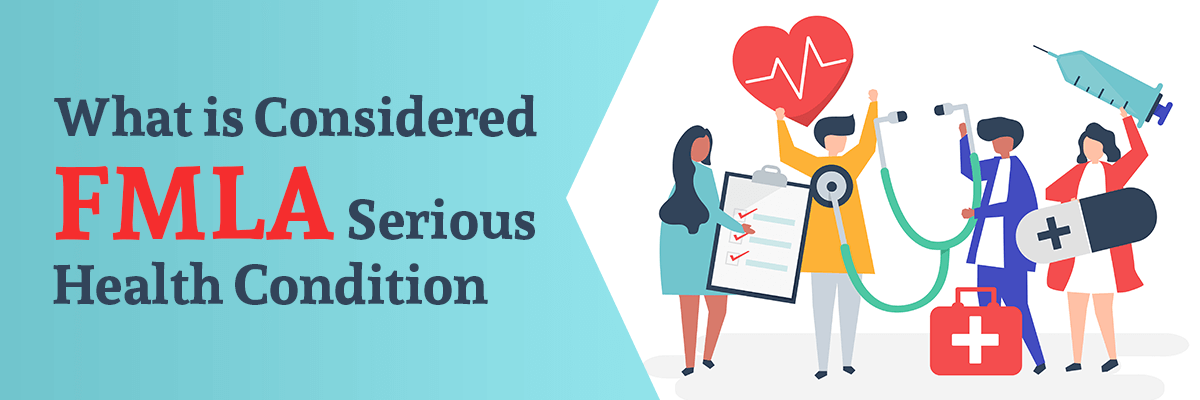FMLA provides 12 weeks of unpaid, job-protected leave for employees. Employees are eligible for such leave for various reasons, including the serious health condition of the employee or a family member. However, whether the health condition of an employee warrants FMLA leave or not has been a matter of debate for employers as well as employees. The Act lays down a framework for serious health conditions that warrant an FMLA leave of up to 12 weeks.



If the health condition of the employee or a family member comes under the purview of the FMLA act, but the employer refuses to grant leave, the employee has the right to seek legal remedies. However, before seeking legal remedy the employee needs to make sure that the health condition is serious enough to consider an FMLA leave.
Serious Health Conditions Under FMLA
The purpose of designing a framework for serious health conditions under FMLA is to delineate major health issues from minor ones such as coughs, colds, sore throats, aches, pains, cuts, bruises etc. The employee needs to get a medical certification from his or her health care provider to work out if a specific health condition is covered by FMLA or not.
- Inpatient Care
If the employee needs inpatient care, the health care provider has to certify that the health condition necessitates at least one night’s stay at a medical facility. Employees are also eligible to leave for post-treatment care or incapacitation arising out of the condition. If incapacitation or post-treatment care necessitates more than 3 days of leave, it is considered as a serious health condition.
The conditions stipulate that the employee has to have the first treatment within the first seven days of initial spell of incapacitation and further treatment within a spell of 30 days.
- Pregnancy and Prenatal Care
If the employee is not able to perform routine activities because of pregnancy or prenatal care, she is eligible for leave in terms of FMLA. Leaves are permissible even for routine, prenatal care visits. However, employers have the right to seek medical certification in this count.
- Chronic Serious Health Conditions
Certain chronic health conditions like permanent incapacity also merit leave under FMLA, even if the employee isn’t under the care of a doctor. However, it requires that:
- The employee undergoes at least 2 visits to the health care provider in a year.
- His health condition persists for a long time and can cause spells of incapacity such as in asthma, diabetes or epilepsy.
- Long-Term Incapacity
If an employee is under the care of a health care provider for long-term incapacity, which is not responding to treatment such as in cancer, Alzheimer’s disease or advanced ALS, the leave is covered by FMLA.
- Multiple Treatments
If an employee needs leave for multiple treatments such as in restorative surgery after meeting an accident or repairing a torn ligament, the leave is covered under FMLA.
Conclusion
FMLA covers most of the likely serious health conditions of an employee or a family member. The employee can even use his or her paid sick leave, family leave or even vacation in these 12 weeks of unpaid, but job-protected leave under FMLA. While taking leave, the employee should keep the above mentioned points in mind, so as to ensure his leave does not falls under FMLA Abuse.


